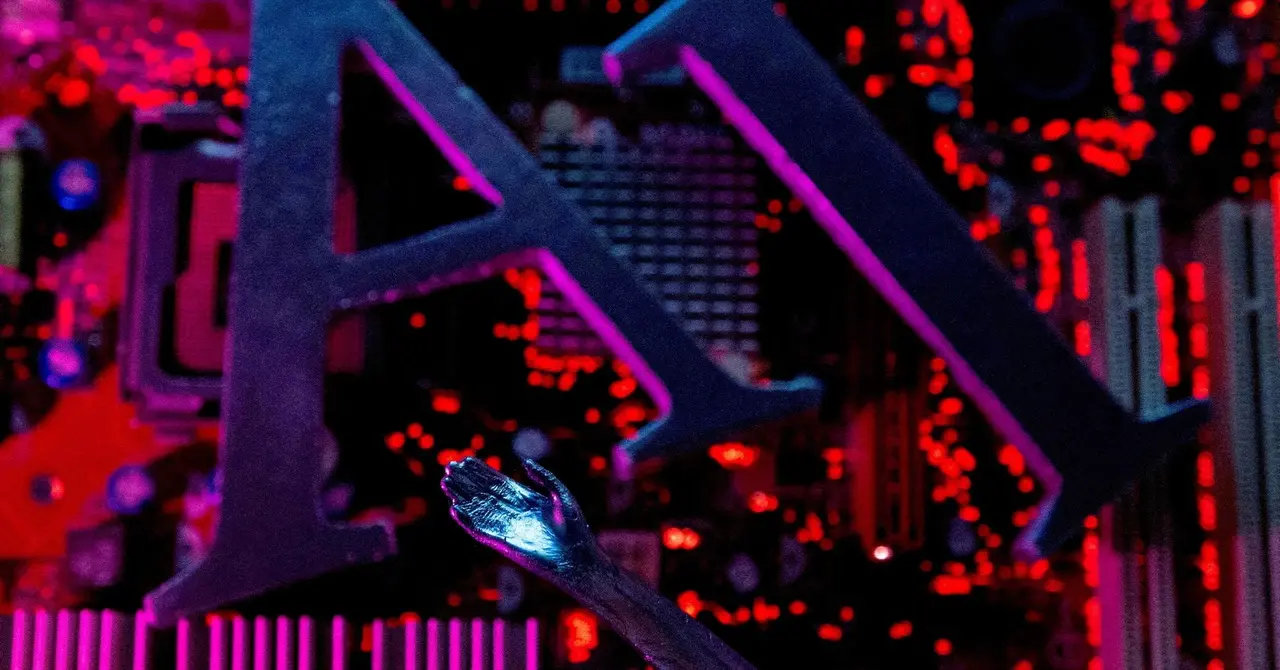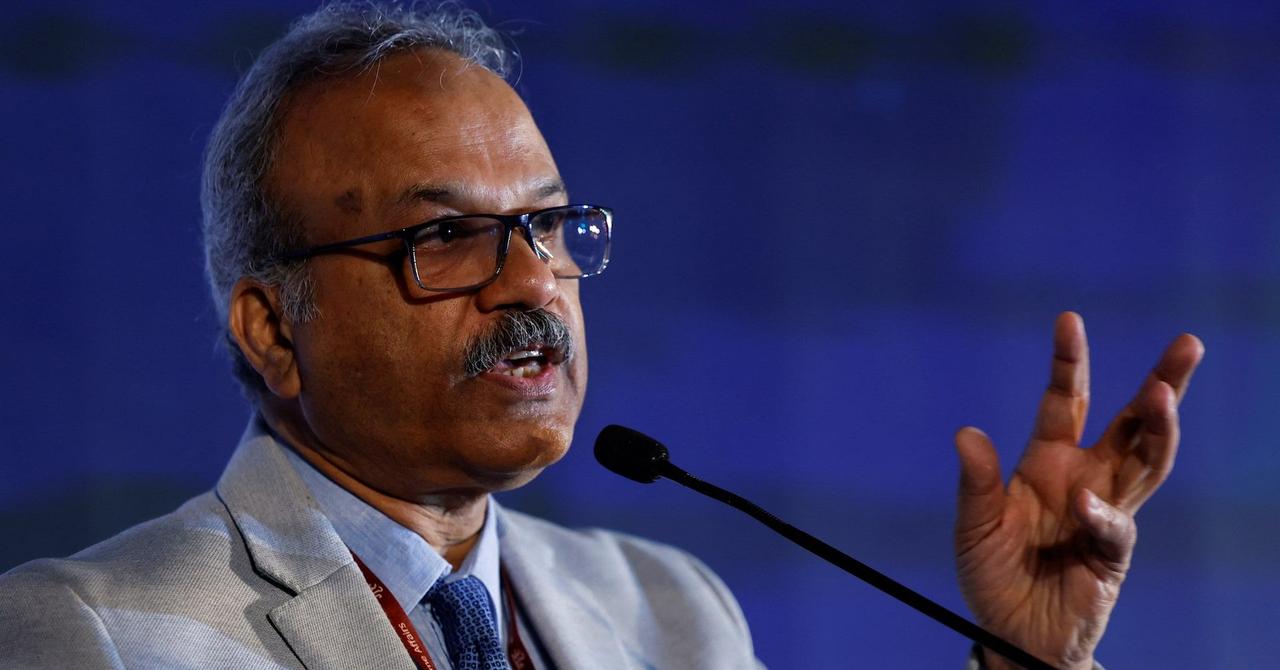AI Takes Center Stage at Pharmaceutical Conference, Overshadowing US Tariff Concerns
2 Sources
2 Sources
[1]
At Conference, Drugmakers Tout AI Efforts as US Tariffs Cast Shadow
By Kashish Tandon, Bhanvi Satija and Rishika Sadam HYDERABAD (Reuters) - The rising adoption of artificial intelligence in the pharmaceutical industry dominated discussions at a conference in India this week, while executives largely preferred to wait for more clarity on U.S. President Donald Trump's tariff threats. Drugmakers such as Amgen and contract manufacturers including Parexel highlighted AI's role in reducing the time taken to conduct certain parts of the trials. U.S.-based Parexel said it was piloting an AI model to generate drug safety reports 30-45 minutes faster than the manual process. The AI-generated reports are then verified by an expert. AI can help halve the cost and time taken to develop a drug, from discovery through commercial production, compared to the traditional process, said Chaitanya Royyuru, partner at consulting firm EY. Royyuru estimated that the process currently takes more than 10 years and costs about $1 billion. Discovering new molecules and drug repurposing, or using a drug for a condition outside of its approved indication, are other areas where AI is being utilized, executives said. Beyond drug discovery processes, AI is also being used in medical image reading, where it is able to assist doctors in finding anomalies. "Sometimes, when we look at an X-ray and we think it's normal, but AI says look, there's a small cancer you're missing," said Nageshwar Reddy, chairman, Asian Institute of Gastroenterology. "And when we actually look at it very carefully and follow the patient, there's a cancer coming there," Reddy said. Ken Washington, chief technological officer, Medtronic, said, "The bottom line is that AI has to be everybody's job." WAIT AND WATCH ON TARIFFS Trump's plans to levy tariffs on pharmaceutical imports had cast a shadow over the two-day conference as India is among the top exporters to the U.S., especially of cheaper versions of popular drugs. However, drugmakers including Dr Reddy's said they were still waiting for clarity on the tariffs. "Right now, it's wait and watch. There is no clarity on what the tariffs are, if any, or if there is a transition period," said Nandini Piramal, chairperson at Piramal Pharma, which provides contract manufacturing and development services. (Reporting by Kashish Tandon, Bhanvi Satija and Rishika Sadam in Hyderabad; Editing by Sriraj Kalluvila)
[2]
At conference, drugmakers tout AI efforts as US tariffs cast shadow
HYDERABAD Feb 26 (Reuters) - The rising adoption of artificial intelligence in the pharmaceutical industry dominated discussions at a conference in India this week, while executives largely preferred to wait for more clarity on U.S. President Donald Trump's tariff threats. Drugmakers such as Amgen (AMGN.O), opens new tab and contract manufacturers including Parexel highlighted AI's role in reducing the time taken to conduct certain parts of the trials. U.S.-based Parexel said it was piloting an AI model to generate drug safety reports 30-45 minutes faster than the manual process. The AI-generated reports are then verified by an expert. AI can help halve the cost and time taken to develop a drug, from discovery through commercial production, compared to the traditional process, said Chaitanya Royyuru, partner at consulting firm EY. Royyuru estimated that the process currently takes more than 10 years and costs about $1 billion. Discovering new molecules and drug repurposing, or using a drug for a condition outside of its approved indication, are other areas where AI is being utilized, executives said. Beyond drug discovery processes, AI is also being used in medical image reading, where it is able to assist doctors in finding anomalies. "Sometimes, when we look at an X-ray and we think it's normal, but AI says look, there's a small cancer you're missing," said Nageshwar Reddy, chairman, Asian Institute of Gastroenterology. "And when we actually look at it very carefully and follow the patient, there's a cancer coming there," Reddy said. Ken Washington, chief technological officer, Medtronic, said, "The bottom line is that AI has to be everybody's job." WAIT AND WATCH ON TARIFFS Trump's plans to levy tariffs on pharmaceutical imports had cast a shadow over the two-day conference as India is among the top exporters to the U.S., especially of cheaper versions of popular drugs. However, drugmakers including Dr Reddy's (REDY.NS), opens new tab said they were still waiting for clarity on the tariffs. "Right now, it's wait and watch. There is no clarity on what the tariffs are, if any, or if there is a transition period," said Nandini Piramal, chairperson at Piramal Pharma, which provides contract manufacturing and development services. Reporting by Kashish Tandon, Bhanvi Satija and Rishika Sadam in Hyderabad; Editing by Sriraj Kalluvila Our Standards: The Thomson Reuters Trust Principles., opens new tab Suggested Topics:Artificial IntelligenceMedtech Bhanvi Satija Thomson Reuters Bhanvi Satija reports on pharmaceutical companies and the healthcare industry in the United States. She has a postgraduate degree in International Journalism from City, University of London.
Share
Share
Copy Link
At a recent conference in India, pharmaceutical industry leaders highlighted the transformative potential of AI in drug development and medical diagnostics, while remaining cautious about potential US tariffs on pharmaceutical imports.

AI Revolutionizes Pharmaceutical Industry
The pharmaceutical industry is witnessing a significant shift towards artificial intelligence (AI) adoption, as highlighted at a recent conference in India. Industry leaders and experts gathered to discuss the transformative potential of AI in drug development, clinical trials, and medical diagnostics
1
2
.Accelerating Drug Development with AI
One of the most promising applications of AI in pharmaceuticals is its ability to expedite the drug development process. Chaitanya Royyuru, a partner at consulting firm EY, estimates that AI could potentially halve both the cost and time required for drug development, from discovery through commercial production
1
. This is a significant improvement over the traditional process, which typically takes more than a decade and costs around $1 billion.AI in Clinical Trials and Safety Reporting
Contract manufacturers are leveraging AI to streamline various aspects of clinical trials. U.S.-based Parexel, for instance, is piloting an AI model that can generate drug safety reports 30-45 minutes faster than manual processes
1
2
. These AI-generated reports are subsequently verified by human experts, ensuring accuracy while significantly reducing processing time.Enhancing Medical Diagnostics
Beyond drug discovery, AI is making substantial inroads in medical image analysis. Dr. Nageshwar Reddy, chairman of the Asian Institute of Gastroenterology, shared an example of AI's potential in radiology:
"Sometimes, when we look at an X-ray and we think it's normal, but AI says look, there's a small cancer you're missing. And when we actually look at it very carefully and follow the patient, there's a cancer coming there"
1
2
.This demonstrates AI's ability to assist doctors in identifying subtle anomalies that might otherwise go unnoticed, potentially improving early detection rates for various conditions.
Industry-Wide AI Integration
The conference emphasized the importance of widespread AI adoption across the pharmaceutical sector. Ken Washington, chief technological officer at Medtronic, succinctly stated, "The bottom line is that AI has to be everybody's job"
1
2
. This underscores the growing consensus that AI integration is becoming essential for maintaining competitiveness in the industry.Related Stories
US Tariff Concerns Loom
While AI dominated the conference discussions, the specter of potential U.S. tariffs on pharmaceutical imports cast a shadow over the proceedings. India, being among the top exporters of pharmaceuticals to the U.S., particularly for generic versions of popular drugs, could be significantly impacted by such tariffs
1
2
.Cautious Approach to Tariff Threats
Despite the looming threat, many drugmakers are adopting a wait-and-watch approach. Nandini Piramal, chairperson at Piramal Pharma, expressed the industry's cautious stance:
"Right now, it's wait and watch. There is no clarity on what the tariffs are, if any, or if there is a transition period"
1
2
.This uncertainty has led companies to hold off on making significant strategic decisions until more concrete information about the proposed tariffs becomes available.
References
Summarized by
Navi
Related Stories
Drugmakers deploy AI to accelerate clinical trials and slash regulatory submission timelines
26 Jan 2026•Health

India's Drug Regulator Aims to Boost Efficiency with AI and Streamlined Processes
05 Sept 2025•Policy and Regulation

FDA and OpenAI Explore AI Integration for Accelerating Drug Evaluations
08 May 2025•Health

Recent Highlights
1
OpenAI secures $110 billion funding round from Amazon, Nvidia, and SoftBank at $730B valuation
Business and Economy

2
Samsung unveils Galaxy S26 lineup with Privacy Display tech and expanded AI capabilities
Technology

3
Anthropic faces Pentagon ultimatum over AI use in mass surveillance and autonomous weapons
Policy and Regulation





